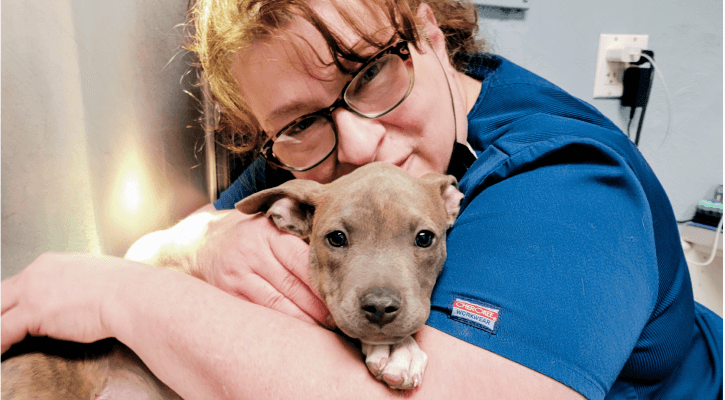Accurate detection is key when it comes to treating your pet, and we offer complete diagnostics including digital radiology (x-rays) and ultrasound imaging. Plus, Middletown Animal Clinic has an in-house laboratory where we perform many diagnostic lab tests while you wait. We can perform blood screens, pre-anesthetic bloodwork, urinalysis and other types of testing on site.
While we offer an extensive range of on-site testing, your pet may need laboratory work beyond our scope. For those cases, we are happy to send blood work or other testing to an outside lab that will send results back to us.
Digital Radiology (X-Rays)
We use advanced imaging technologies to guarantee the highest quality of care for our patients.
Radiographs, or x-rays, use electromagnetic radiation directed towards the body to highlight objects within. They can detect abnormalities including skeletal fractures, soft tissue damage, foreign bodies and dental disease.
Orthopedic radiographs and contrast studies require the patient remain completely still to work correctly, necessitating sedation in most cases. The duration of sedation or anesthesia is usually short and patient recovery is swift.
Ultrasound
Ultrasound is a powerful diagnostic tool that creates a real-time image of an animal’s body. This composite reveals important information about internal processes including the circulatory, skeletal and gastrointestinal systems.
When used in conjunction with other diagnostic tools like x-rays, ultrasounds can help identify disease, blockages, skeletal fractures, soft tissue damage and other internal injuries.
An ultrasound works by broadcasting high-frequency sound waves that reflect off your pet’s internal structures. A small probe held against the skin collects the returning signals to create an image of the internal body, used to examine abdominal organs like the stomach, kidneys, liver, spleen and gallbladder. An ultrasound of the heart, known as an echocardiogram, provides precise information about heart valves, blood flow, chamber size and contractions.
Completely painless and non-invasive, ultrasounds usually require some sedation because the patient must remain completely still. We use advanced imaging technologies guaranteeing the highest quality of care for our patients.
Tonometry
Tonometry measures the pressure inside the eyeball and can test for glaucoma and uveitis. Increased pressure within the eye itself can be extremely painful for your pet and constitutes a medical emergency to prevent rupturing of the eyeball.
Tonometry is an easy way to check for increased intraocular pressure and can be used without sedation because pets tolerate it very well. A numbing drop is placed into each eye before the test, and a specialized instrument is lightly touched to the cornea of the eye to measure the pressures.
Therapy Laser
Our Doctor Vet Therapy Laser offers a pain free and non-invasive option to help treat pets with arthritis, orthopedic conditions, pain management, wound care management, inflammation, treatment of trauma and post-surgical care to provide quicker healing.
Have questions about our diagnostic services or want to schedule an appointment for your pet? Call us at (718) 824-8300.

